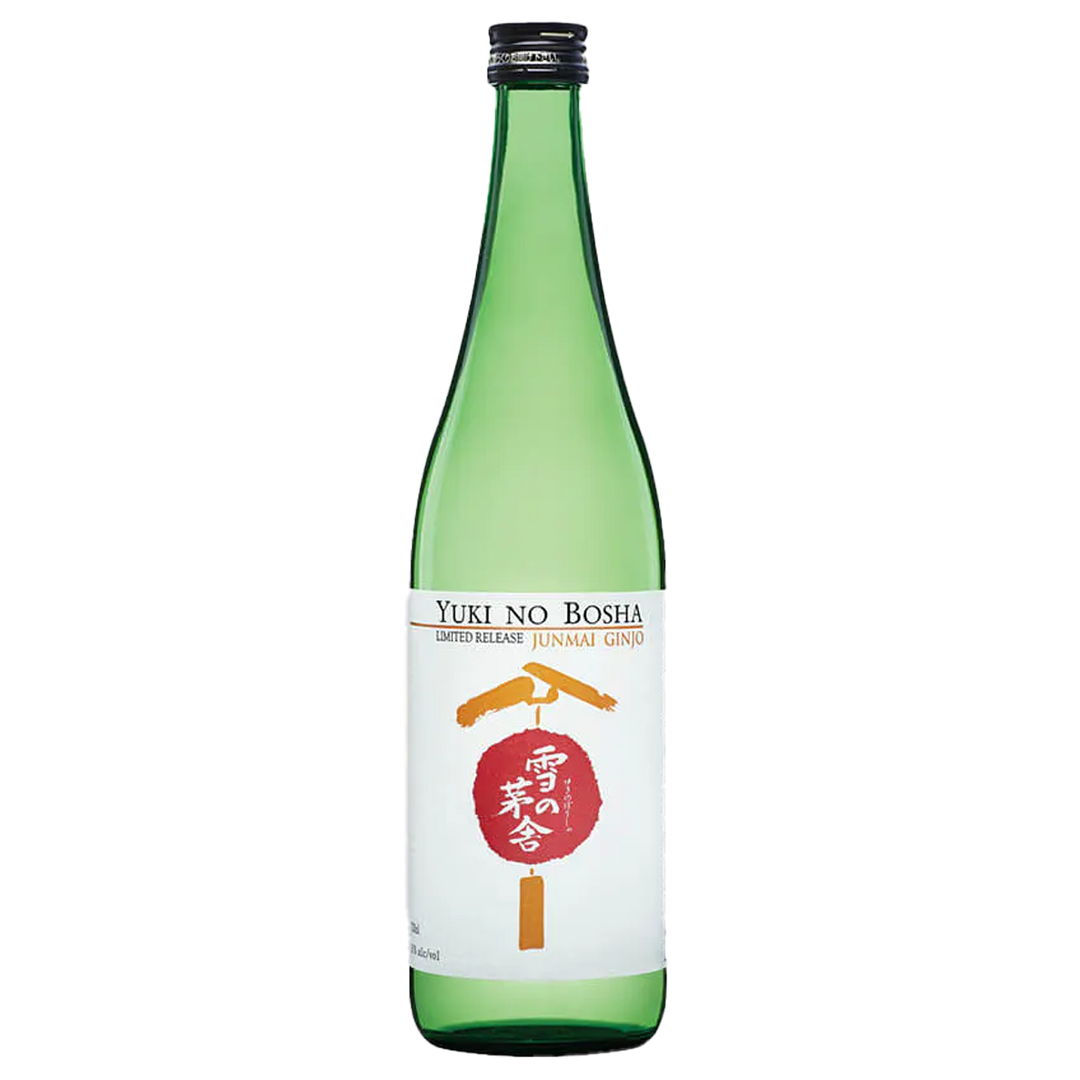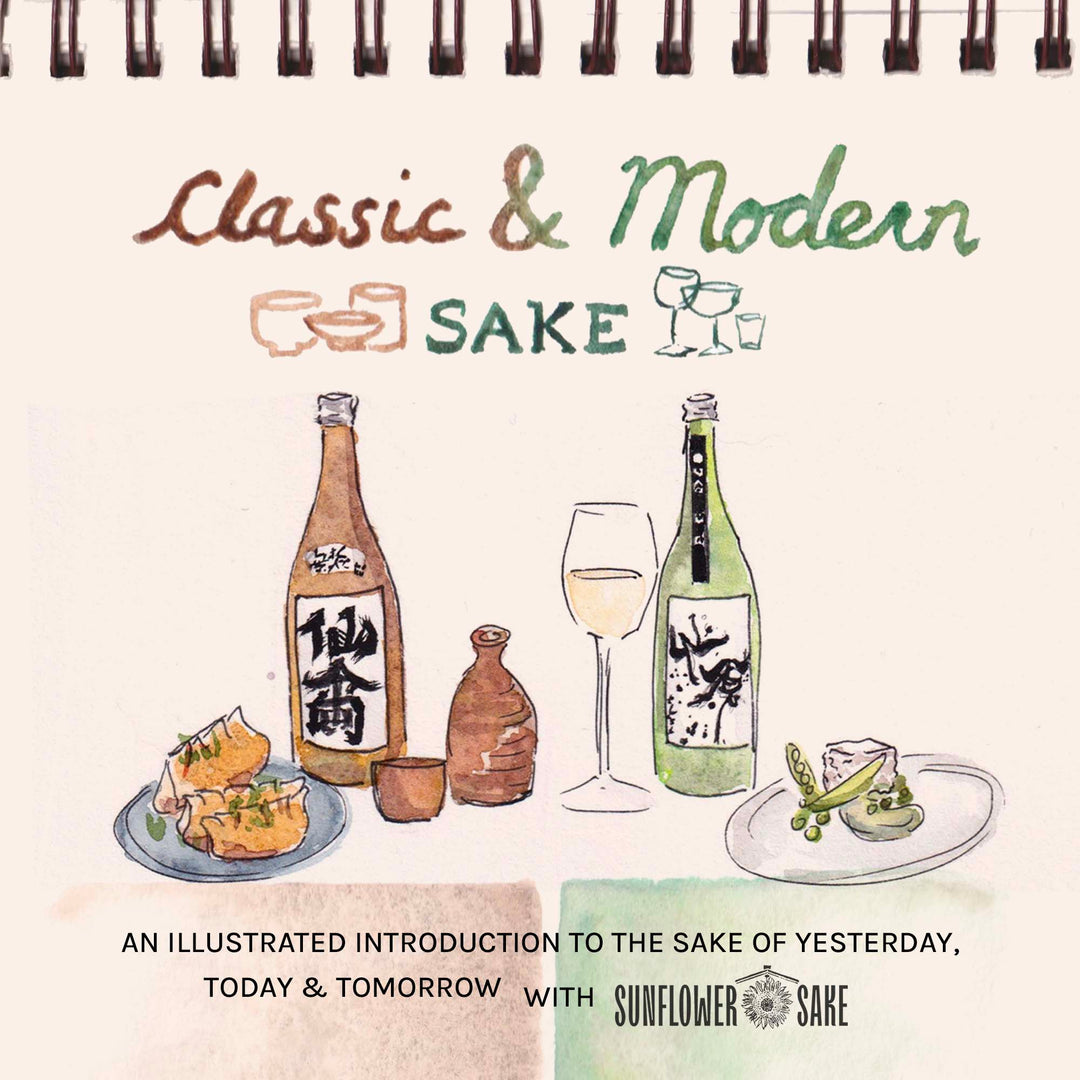
Yuki No Bosha Junmai Ginjo "Cabin in the Snow"
- Low stock - 2 items left
- Inventory on the way
Founded in 1903, the Saiya Brewery is one of the most award-winning breweries at the Japanese National Sake Competition. In the past fifteen years of the competition, the brewery has won an astonishing ten gold medals. Mr. Takahashi, their brewmaster, has been recognized by the Emperor of Japan as a cherished craftsman. This junmai ginjo is a favorite with new and seasoned sake drinkers alike. Like Wataribune, Cabin in the Snow is uniquely popular in Portland.
Serve chilled with salad, spicy foods, sashimi, and desserts with a light sweetness. Or enjoy on its own. This has enough presence and finish to really be enjoyable as a solo sipper.
Region: Akita
Grade: Junmai Ginjo
Seimaibuai: 55%
Rice: Akita Sake Komachi
Yeast: house yeast
Shubo Method: Sokujo
Pressing: Yabuta
Filtration: SF Filter
Pasteurization: Once
Saiya Shuzoten is remarkable for a number of reasons. First and most simple is that it is located in Akita prefecture near the coast, meaning a generally cold climate with a high level of winter snowfall and relatively cool temperatures year-round. Akita breweries are known for innovation, independent thinking, high quality, and a unique balance of richness and elegance in the final sake (Chogetsu/Tenko/Taiheizan, Akitabare, Aramasa, Takashimizu...) It could be speculated that this is a combination of local talent in the Sannai (Akita) Toji guild, proximity to the Nanbu Toji guild (Iwate prefecture, a neighbor), remote location with unique rice growing challenges, climate, and local cuisine, which is at once delicate from the abundance of seafood, but also rich from the historic need to preserve foods for the winter via salt, fat and pickling. Second, Saiya observes a brewing philosophy of minimal intervention while maintaining extraordinary technical acumen and execution. Saiya's minimal intervention is focused on handling the sake as gently as possible and using their own house microbes. The brewery is built on a hillside so that it can utilize gravity for gentle liquid transfer. The toji inoculates koji using a unique conveyor system so that it doesnt have to be manipulated as much. The brewing mash is never stirred, instead letting the communities of microbes coalesce, and generate heat, where and as they see fit within the tank. All sake is fermented using proprietary house yeast which were isolated from exceptional past batches. And all yeasts are foaming yeasts (messier/more old fashioned), because the master brewer believes that these produce healthier fermentations which can be monitored more precisely by observing the bubble size and shape. Finally, no chemical disinfectants or cleaners are used in the brewery. It's kept meticulously clean with loads of elbow grease and attentive practices. This is of course unthinkable in modern winemaking and beer brewing, but according to the toji the brewery's microbiome is its greatest asset and must be preserved.
Finally, Saiya is committed to using organic local rice and was the first brewery in Japan to obtain ASAC organic certification. Not all rice used in Yuki no Bosha is organic, but it's a long-term commitment for the brewery to source as much organic rice as possible from Akita prefecture.




